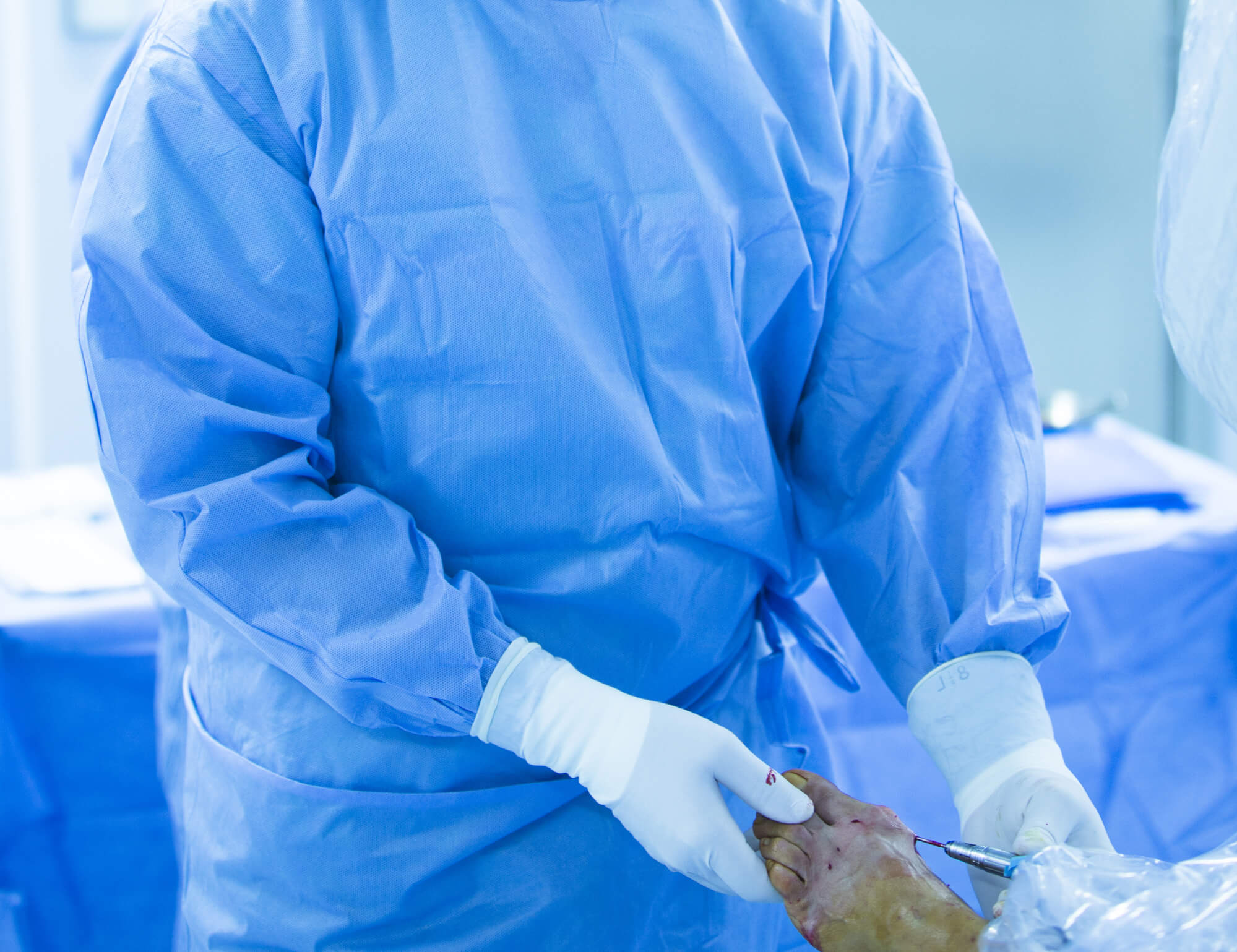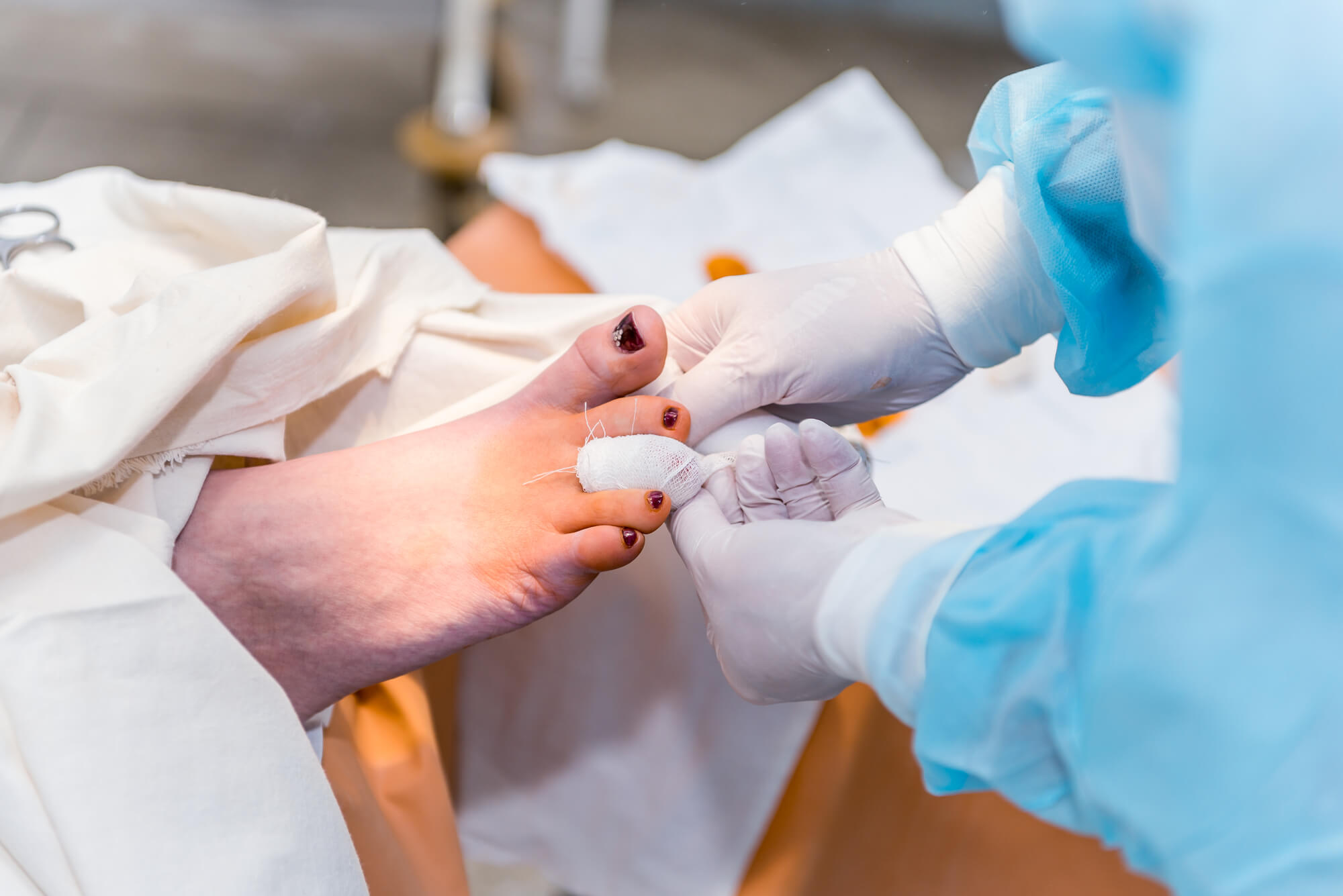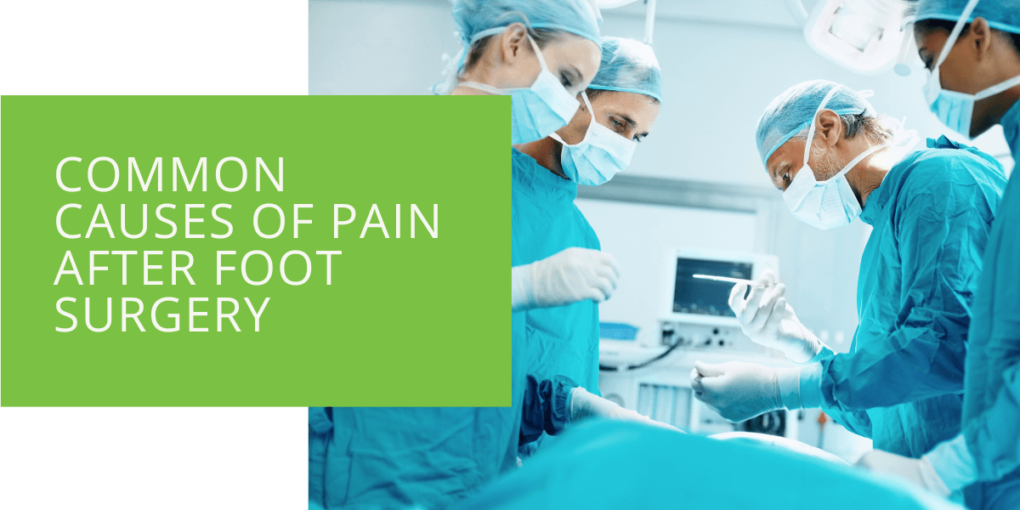Common Causes of Pain After Foot Surgery
Foot surgery can effectively address various foot and ankle issues, from bunions and hammertoes to injuries and deformities. While many patients experience a smooth and relatively pain-free recovery following foot surgery, others may experience discomfort and pain in the days and weeks following the procedure. In this article, we will explore some of the most common causes of pain after surgery and provide tips and strategies for managing these symptoms effectively.
Potential Causes of Pain Following Foot Surgery
Infection
Infections are one of the most common complications following any surgical procedure; foot surgery is no exception. Patients may experience redness, swelling, and fever symptoms, indicating an infection. Sometimes, the incision site may also become hot to the touch or produce a discharge. If you experience any of these symptoms following surgery, it is important to seek medical attention immediately. Your podiatrist may prescribe antibiotics or recommend additional treatment to address the infection and prevent further complications.
Inflammation
Inflammation is another common cause of post-surgery foot pain. Swelling can occur as the body's natural healing response kicks in, causing blood vessels to dilate and fluids to accumulate in the affected area. This can be particularly problematic in the foot and ankle, which are highly susceptible to swelling due to their proximity to the ground. To manage inflammation after surgery, your podiatrist may recommend elevating your foot, applying ice, and taking over-the-counter pain medication as directed.
Nerve Damage
Nerve damage is a potential complication of any surgical procedure, including foot surgery. Patients may experience tingling, numbness, or burning sensations in the affected foot or ankle. In some cases, the nerves may be damaged during the procedure, while in others, the damage may occur due to swelling or inflammation following the surgery. To manage nerve pain after surgery, your podiatrist may recommend nerve blocks or other pain management techniques, such as prescription pain medication.

Scar Tissue
Scarring is a normal part of the healing process following foot surgery, but excessive scarring can lead to discomfort and pain. Scar tissue may form as the body repairs the incision site, potentially causing nerve compression or interfering with normal foot and ankle movement. Your podiatrist may recommend massage, stretching, or other techniques to manage scar tissue and improve your comfort after surgery.
Poor Wound Healing
Poor wound healing can also contribute to post-surgery foot pain. If the incision site does not heal properly, it may become infected or take longer. Patients with diabetes or other chronic health conditions may be particularly susceptible to poor wound healing following foot surgery. To manage this issue, your podiatrist may recommend additional wound care measures, such as specialized dressings or frequent check-ins to evaluate the healing process.
Hardware Issues
In some cases, hardware issues may arise following foot surgery. Patients with pins, screws, or other hardware may experience discomfort or pain if the hardware becomes dislodged or moves out of place. Your podiatrist may recommend additional imaging or evaluation to assess the positioning of the hardware and may recommend surgical intervention if the issue is particularly problematic.

Factors That Influence the Risk of Post-Surgery Foot Pain
While foot surgery can effectively address a range of foot and ankle issues, it is important to understand that not all patients are at equal risk for post-surgery foot pain. Several factors may influence a patient's risk of experiencing discomfort or pain when they undergo surgery, including:
Age
As we age, our bodies become less resilient and unable to recover quickly from injury or trauma. Older patients may be at higher risk for post-surgery foot pain due to age-related changes in circulation, nerve function, and other bodily systems. Additionally, older patients may have other health conditions that can complicate the healing process and increase the risk of complications after surgery.
Overall Health
Patients with chronic health conditions such as diabetes, peripheral artery disease, or heart disease may be at higher risk for post-surgery foot pain due to underlying health issues that can interfere with healing. Patients who smoke or have poor nutrition may be at higher risk for post-surgery complications, including pain and discomfort.
Type of Surgery
The specific type of foot surgery can also influence a patient's risk of experiencing post-surgery foot pain. For example, more invasive procedures such as fusion surgery or joint replacement may be associated with a higher risk of complications and pain than less invasive procedures such as bunionectomy or hammertoe correction.
Foot and Ankle Condition
Finally, the underlying foot or ankle condition being treated with surgery can also influence a patient's risk of post-surgery pain. Patients with severe or chronic conditions may be at higher risk for complications or pain following surgery. In contrast, those with more minor or acute conditions may experience a smoother and less painful recovery.
By understanding these various risk factors, patients and their caregivers can take steps to minimize the risk of post-surgery foot pain and optimize the healing process after surgery. Your podiatrist can provide guidance and support throughout the surgical process, from pre-operative planning to post-operative care and follow-up. If you have concerns about post-surgery foot pain or other issues related to foot and ankle surgery, be sure to reach out to your podiatrist for advice and guidance.
Conclusion
Foot surgery effectively addresses foot and ankle issues, but post-surgery foot pain is not uncommon. By working closely with your podiatrist and following their post-surgery instructions, you can manage your symptoms and improve your chances of a successful recovery. If you experience pain or discomfort following surgery, seek medical attention promptly.

